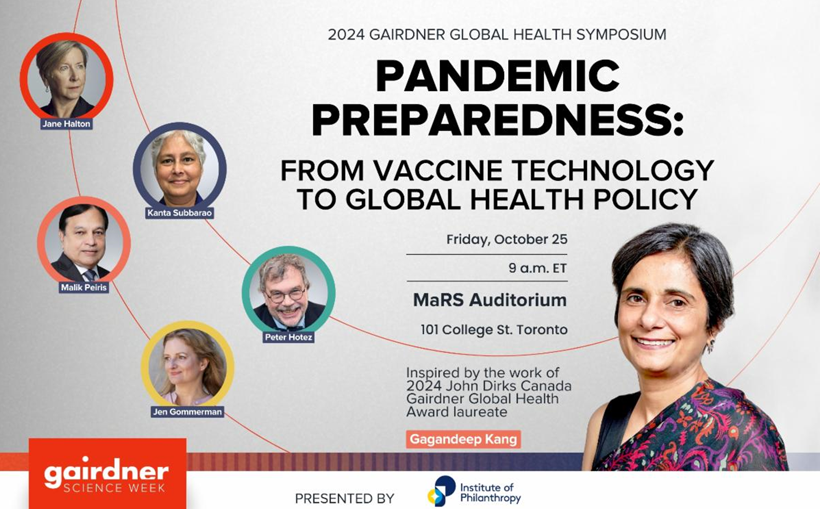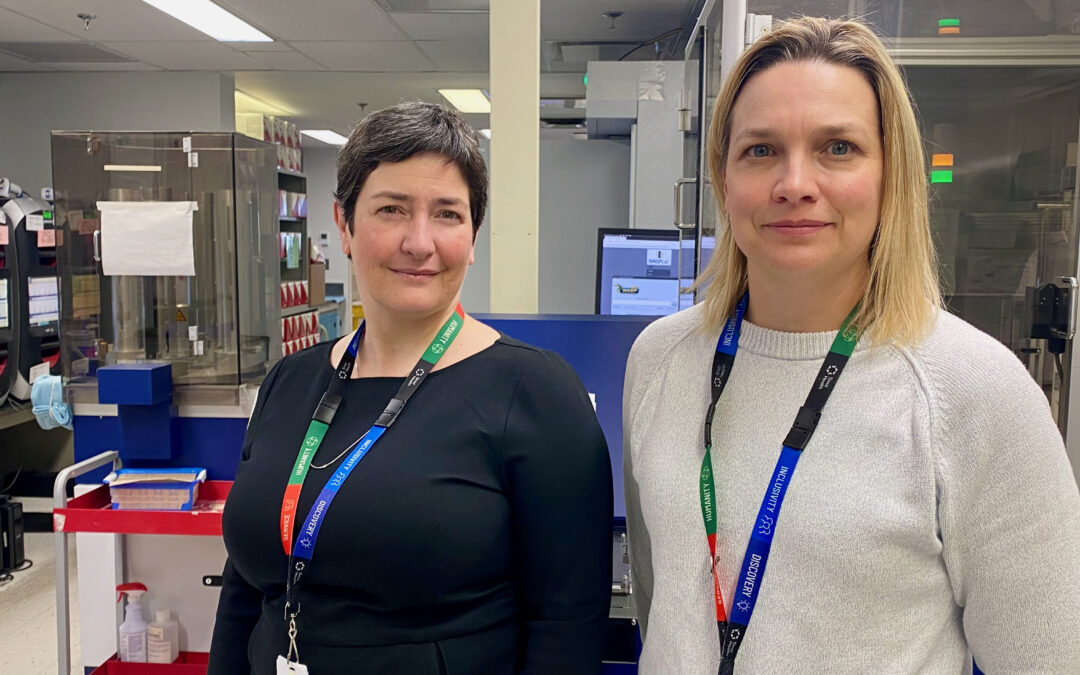


U of T team applies learnings from mpox to strengthen pandemic preparedness for gay, bisexual and queer men
Daniel Grace (left) and Mac Stewart June 27, 2024 By Betty Zou Amid the usual preparations for Pride events around the world this year, many public health and community agencies also sent out reminders about mpox vaccinations. Here in Toronto, where 21 new cases were...
Collaborative $19 million initiative aims to strengthen Canada’s pandemic response
Anne-Claude Gingras (left) and Jennie Johnstone. Photo credit: Sinai Health May 7, 2024 By Jovana Drinjakovic As we navigate the aftermath of COVID-19, the inevitability of another pandemic looms over us — it’s a matter of when, not if. Recognising this urgency, the...
Institute for Pandemics Interdisciplinary Symposium
The Institute for Pandemics (IfP) is pleased to present its 2024 Interdisciplinary Symposium, on April 18th at the historic Great Hall of Hart House on the St. George campus of the University of Toronto. This year’s theme is “Reimagining Response & Preparedness...
Experts gather at EPIC symposium to discuss how to bolster support for infectious disease research and pandemic preparedness
A panel of experts called for sustained funding investments, stronger ready-to-use infrastructure and improved communications to help Canada break the cycle of panic and neglect around infectious diseases. These themes emerged from a discussion at the first annual Emerging and Pandemic Infections Consortium symposium held in mid-October. The panelists included Leah Cowen, vice-president, research and innovation, and strategic initiatives at the University of Toronto, Marisa Creatore, executive director of the Centre for Research on Pandemic Preparedness and Health Emergencies at the Canadian Institutes of Health Research, and U of T President Emeritus David Naylor.

